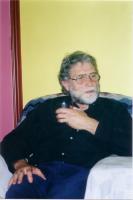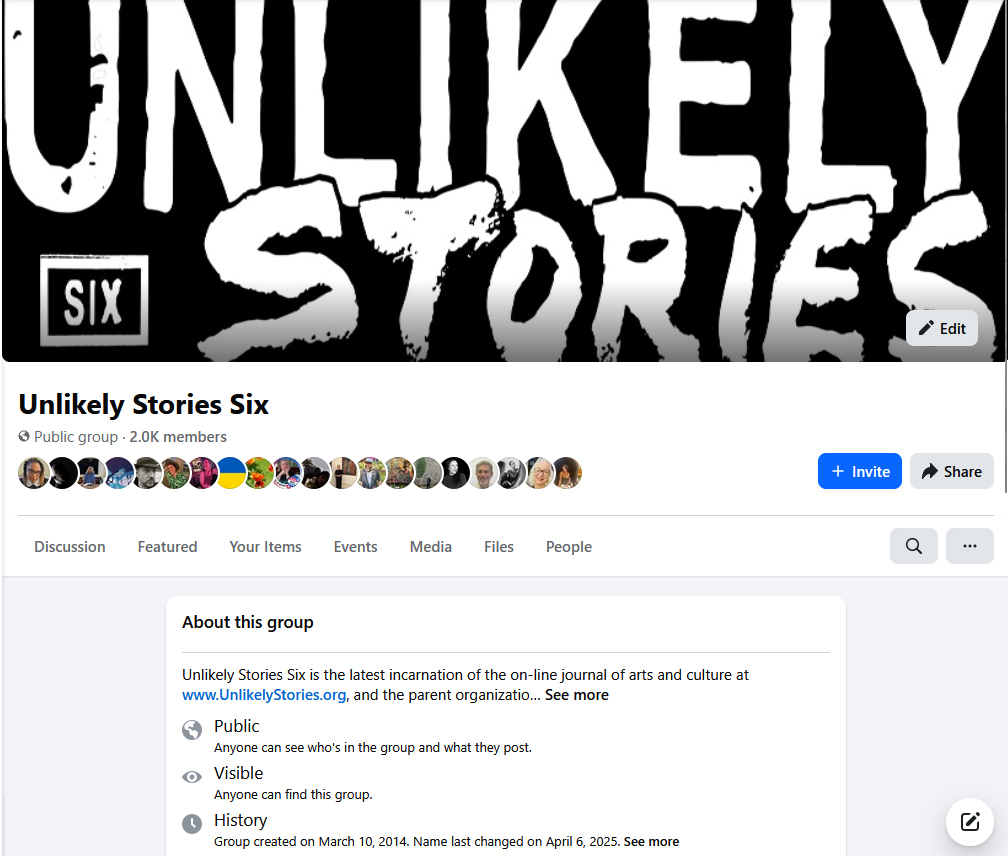by Ian C. Smith
The flight from Seattle to Paris was in autumn but we were exhausted, broke and travel weary, seeking the shelter of our makeshift English base, not the euphoria of Paris. We could be turned back or detained and deported. My plan was dodgy, dependent on luck after our one-way transatlantic fares, like thumbing it from Poughkeepsie to Labrador, then to Alaska, sleeping soaked on rolling ferry decks. Dropped at the airport’s car park ultra-early, schedules tricky for hitchhikers, I was on edge, our tickets not in our names. We had already been declared aliens when our visas had expired on an earlier adventure.
Fidgeting, we watched, waiting for the check-in queue to crowd up, our tickets, unwanted return flights, cheap, bought with our last dollars, were advertised by an English couple in a Vancouver travellers’ hostel. Their hyphenated surname contained ours. If challenged, I had a convoluted story – disliked cumbersome names, preferred nicknames – soft, but the best I could come up with. Seeing runways through glass, dreamlike, almost soundproof, a taxiing jet’s whine like a ghostly siren beckoning us just out of reach, I imagined an exposed spy with nowhere left to hide.
The concourse grew busier. Time crept in dusty light. Then our flight clicked up, top of the board. You felt bilious, brought on by my selfish risk taking. We were to land in Houston and then London if not led away by security. Finally, when those black waves were beneath us, below them, scuttling crustaceans coping with pressure better than we had, you were back and forth to the toilet, white-faced. Chastened, I at last felt safe yet still dreaded the retrospection of a life wasted one distant day in the land of too late now, that one-way fare to a place I didn’t want to go.
At our base in Sussex, a former stable in a virtual island within bypass roadworks, a no-man’s land in the rain like a film set for a Battle of the Somme scene, red plastic cracked in the wind. Everywhere we looked were witches’ hats, many toppled like refugees washed up on a bleak beach. Sharing that vastness of mud with us, an odd set of rooms, a two-storied, half-timbered, half-finished house, was surrounded by piles of waste building materials. Our landlord lived alone in that chaos.
He could have emerged from the pages of a strange Ian McEwan novel, appearing silently, breath misting as he prodded mounds of junk with a cane. A scarf circled his face, tied below his chin, sopping up rain. Young, but with an old man’s demeanour, he spoke in a macabre tone, telling us he had the house transported there to refurbish it. On our first evening back, looking out the window we saw in fading light a rottweiler motionless in the rain on a flat section of that mock Tudor shell’s roof facing Ditchling Beacon.
Giving up on our damp spluttering fire we slithered through the suck of mud attracted by the suggested comfort of the lights in our nearest pub. After hurrying past that half a house, I glanced back half-expecting a smell of wet dog but the rottweiler ignored us. In the near-deserted pub we read a Police notice about a local murder while we were away. A torso had been found in the vicinity, but no limbs or head. I reached for my notebook. I had started writing about our escapades. In my monochrome memory you were growing fed up with my morbid wisecracks. When I at last made you smile you said if you didn’t laugh you would scream.
Vacating the mud, we decamped to the north for work where we walked past Major Oak in Sherwood Forest, its great boughs scaffolded, ancient wood in intensive care. It seemed we could evade a murderer but not renovations. Ye Olde England was suffering. No merry men there but we did enjoy Christmas Eve carol-singing with locals for charity. Your work in the welfare sector a success, your career today was already on its way then. Although we had a wreck of a car, twice a week I walked to the library to help people down on their luck to read. Thea, in charge of volunteers – me – appeared to share your disapproval of lame jokes delivered in my soap opera twang in that warm refuge.
When she locked up, we walked in the same direction. Pubs emptying on those unemployed streets, I thought she might be harassed by yobs on her way to the bus stop. Sensing a selfless soul I ignored Thea’s discomfited protests, standing in the cold with her until her bus came because that’s what my decent English uncle would have done. Waiting for her at home were a husband and children. She knew you waited for me, too. If queuing and obedient were Australian descriptors for the English, brash was theirs for expatriate Australians, accurate about me in those days of plunging in, sparking our soporific group encouraging them to read words I adored, to give imagination full rein, etching Thea’s frown ever deeper.
After listening to Adagio for Strings from the Platoon soundtrack I bought one-way fares one more time. Our funds, subsidised by savings, were dwindling ever lower. We had become etherised there with the dripping tap, and lampposts’ sad perspective. Homesickness played its part, tarnishing my amour propre, the self-styled traveller image more so than the writerly version. Warmth glowing in her words, Thea said I would be terribly missed, echoed by our readers, surprising me, my throat jammed by this parting of ways, quieting me at last. With less need to cram life in I think in solemn moments of those days, our table we sat – and I sometimes pranced – around. Now I live alone with my history, that cat’s cradle of dreams left behind, my exiled action, only one more dodgy one-way departure left.





Add comment